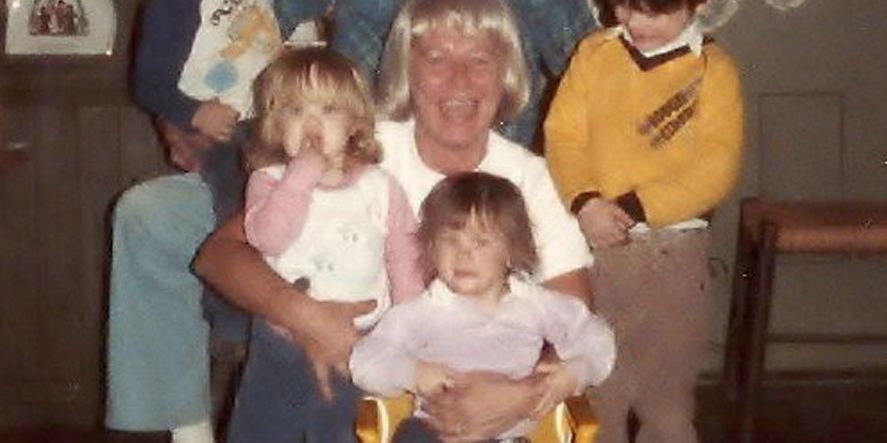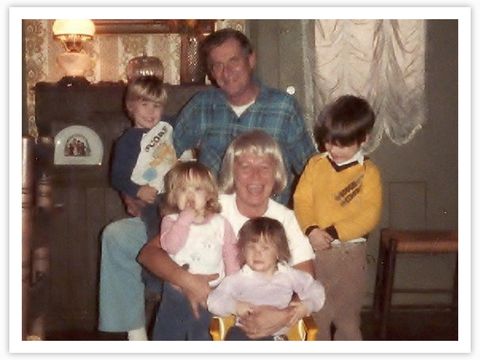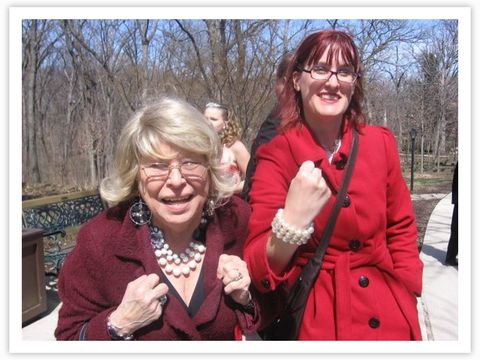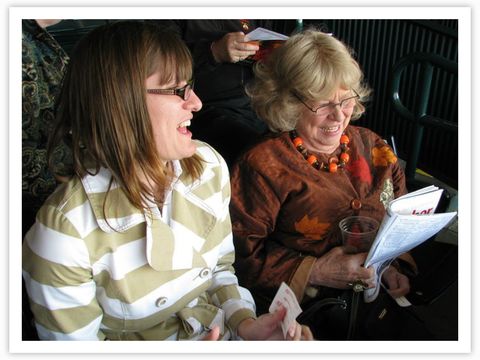I’m taking my pulse again. I’ve been doing it almost constantly since I woke up a few hours ago, when I felt the tiniest flutter in my heartbeat, one that most people wouldn’t even notice. I’m trying to be sly about it, though — turning away from my partner and pretending I’m having an extended yawn while subtly checking my heart rate during the accompanying stretch.
It’s not as subtle as I think. He knows exactly what I’m doing. It’s the same thing I’ve done for years since I was in my early 20s.
“Are you alright?” he asks.
“Oh, I’m fine, I think. I just feel like I’m about to have a heart attack.”
Shades of this conversation play out in my life practically every week. I know it certainly sounds silly. I know I’m overreacting to a completely normal situation — at least for someone who isn’t genetically predisposed to heart issues. That’s why I try to mask it in a yawn, or by propping my head up on my hands, or by bending down to pet the dog so no one can see my fingers on my neck.
But I’m still afraid. What if this time, it finally happens?
A Fear of Heart Failure
My paranoia is apparently much more common than I could ever imagine — a condition called cardiophobia, the fear of having a heart attack and dying. It’s not a word I’ve known for very long, just a couple months, despite dealing with this specific anxiety for most of my life. Years in, I finally turned to the Internet to glean just a little bit more about why I was so paranoid I was going to have a heart attack (no, really), and found an article about cardiophobia. It sounded a heck of a lot like me, so I forwarded it to my therapist so we could discuss it in my next session.
Cardiophobics are constantly listening to their hearts, with metaphorical ears out for even the slightest change in heartbeat, pulse, or blood pressure. People suffering from severe cases of anxiety disorder can even have a panic attack at seeing just a picture of a heart.
The phobia affects hundreds of thousands of people in the United States alone. It can cause psychosomatic symptoms, too, because we pay so much attention to our hearts at all times that we’re convinced there’s something wrong — even when there isn’t, as proved by cardiologists’ screenings.
Like most anxieties, doctors (and patients!) don’t often know exactly what causes cardiophobia. Bully for me, I suppose — because I know exactly why I feel this way and can easily identify the root of my heart-based anxiety.
A Heritage of Heart Disease
At an early age, I overheard a conversation my mother was having that made it seem like all women in my family — those in every other generation — die of a heart attack by the time they’re 40.
Naturally, I thought my mom was joking, but she remains firm that she didn’t invent this supposed genealogical curse; and I feel like I definitely heard it more than once, even if it was in a dream.
At that age, maybe around 9 or 10, it was nothing more than a certainty that I would suffer from this attack. The anxiety and fear developed as I got older, though. It does appear that heart problems in my family indeed skip a generation. My mom doesn’t have any. My grandmother had congestive heart failure that was fixed, and she lived to her late 70s. My great-grandmother didn’t have any heart problems. But someone before her did.
And as it turns out, I do have a problem with my heart. More evidence that it skipped a generation and fell on me.
Fixing My Abnormal Heart
When I was 20, I ended up in the emergency room. My chest hurt and my heart was beating ridiculously fast, about 200 beats per minute. I was lightheaded and thought I would pass out. But by the time they got me checked in and hooked up to the monitors, my heart had slowed to a normal pace. Doctors never saw the elevated rate. They told me it was just anxiety, but set me up with a portable heart monitor for a few days, just in case.
I wore the monitor dutifully, tracking every single symptom I thought I was having. The one thing I didn’t include? When I woke up overnight with a similarly elevated heart rate, thought it was just from a nightmare, and went back to sleep.
My doctor at the time saw the blip on the records from the heart monitor but noticed I hadn’t included it in the log. From the information he had, it looked like I didn’t even notice. When we discussed my results, he said there was no problem, that I listened to my body too much, and that I needed to de-stress. It seemed to be just anxiety.
Thus began a cycle for the next decade of doctors, heart monitors, scans, EKGs, anxiety diagnoses and a barrage of unaddressed complaints of my heart rate. It wasn’t until I was in my 30s that a monitor finally caught something.
I plopped down on the couch one day and bam — my heart rate skyrocketed. The thudding went on for what seemed like several minutes, but in reality was less than one, before it felt like someone flipped a switch and suddenly I was back to normal. I was exhausted from the episode but elated. A monitor had finally caught something, after all, and doctors finally entertained that I was experiencing symptoms of heart disease.
Armed with this information, I was diagnosed with Supraventricular Tachycardia (SVT). An ultrasound of my heart showed that I had extra tissue in one spot that was disrupting the electrical flow. Basically, it was making my heart short-circuit into an abnormal rhythm because the electrical pulse was getting hung up on the extra tissue. It wasn’t typically life-threatening, my new cardiologist told me, but it could be. That — and how the SVT made me feel — was enough for me to decide to have it fixed.
I had a cardiac ablation about four years ago. An electrophysiologist went into my heart through a catheter, lasered off the extra tissue and sent me on my way. I haven’t had an SVT episode since.
My brain doesn’t want to believe it, though. My brain still thinks I’m going to die.
I know I won’t face major threats from SVT anymore. And I understand that my heart has healed and is functioning properly. But I can’t shake that premonition that I’ll have a heart attack. Maybe the extra tissue will grow back (my surgeon told me there’s a 5% chance of that), or maybe one day my heart will have just had enough — and I’ll be gone, lost to a generational curse that for some reason I feel I haven’t yet fulfilled.
Rationalizing My Irrational Fears
According to Nachiket Patel, M.D., an interventional cardiologist at the Cardiovascular and Arrhythmia Institute in Arizona, my belief that heart problems skip a generation in my family is far-fetched.
“This is a coincidence,” Dr. Patel says. He noted three heart conditions that commonly have a strong hereditary component: familial hypertrophic cardiomyopathy (where the heart muscle becomes too thick), familial dilated cardiomyopathy (the heart muscle becomes too thin) and familial hypercholesterolemia (a chromosome defect that causes high cholesterol). There are more, but those are the most common. None of them have been reported in my family, and all of them have an autosomal dominant inheritance.
“Meaning, there would be at least one family member in each generation affected by the condition,” Dr. Patel explains. “In most heart conditions there is an interplay between genetics as well as environmental factors… However, studies show that people with high genetic susceptibility for heart disease are able to reduce their risk by almost half by living a healthy lifestyle.”
Dr. Patel also told me that heart attacks only carry a genetic risk if my mother, sister (I don’t have one) or daughter (I don’t have one of those either) developed heart disease before they turned 65 — or if my father, brothers, or son (nope!) developed heart disease before they turned 55. None of that applies to me, so theoretically, I shouldn’t have to worry about genetic heart problems overcoming my own healthy lifestyle.
My ablation also won’t cause any issues, he adds. Heart attacks are due to artery blockages (often caused by dietary choices), and previous procedures aren’t artery blockages. My grandmother’s congestive heart failure? Also not an issue for me, he stresses: “There are too many factors that are in your control to say that you are doomed to have congestive heart failure just because your grandmother did.”
If I keep up with the lifestyle I’m striving for currently — exercising six days a week, eating a pescatarian diet, and skipping tobacco, drugs and alcohol — I have the best chance of avoiding my grandmother’s fate.
It’s an Ongoing Battle
Considering that both my grandmothers had enjoyed a long life, and that my own mother is growing gracefully into her mid-60s, I wish I could be able to move forward without worrying. Even discussing my slim risk factors with doctors isn’t helping me overcome my bleak fear.
Even after all I’ve learned, I’m still on edge about heart attacks. I’m not yet 40, which is the weird pseudo-deadline I’ve given myself to get my affairs in order by, and that weighs heavily on my mind. There’s some part of me that is still convinced I’m going to drop dead of a massive coronary the day after my 40th birthday. I still freak out when my heart skips a beat, or when I feel the tiniest bit dizzy or out of breath. It may affect my life until that day comes — and maybe even after.
I’m lucky in a way; I have a phenomenal therapist who helps talk me through this fear and sets me up with mantras and excellent advice. It’s helped some.
But I still refuse to do burpees at the gym because once it triggered an SVT attack. And I still won’t go skydiving because I’m worried my heart would just completely give out. My only hope is that as 40 comes and 40 goes, I’m still kicking around enough to look back and laugh about how paranoid I was in my youth. Fingers crossed.
This content is created and maintained by a third party, and imported onto this page to help users provide their email addresses. You may be able to find more information about this and similar content at piano.io





